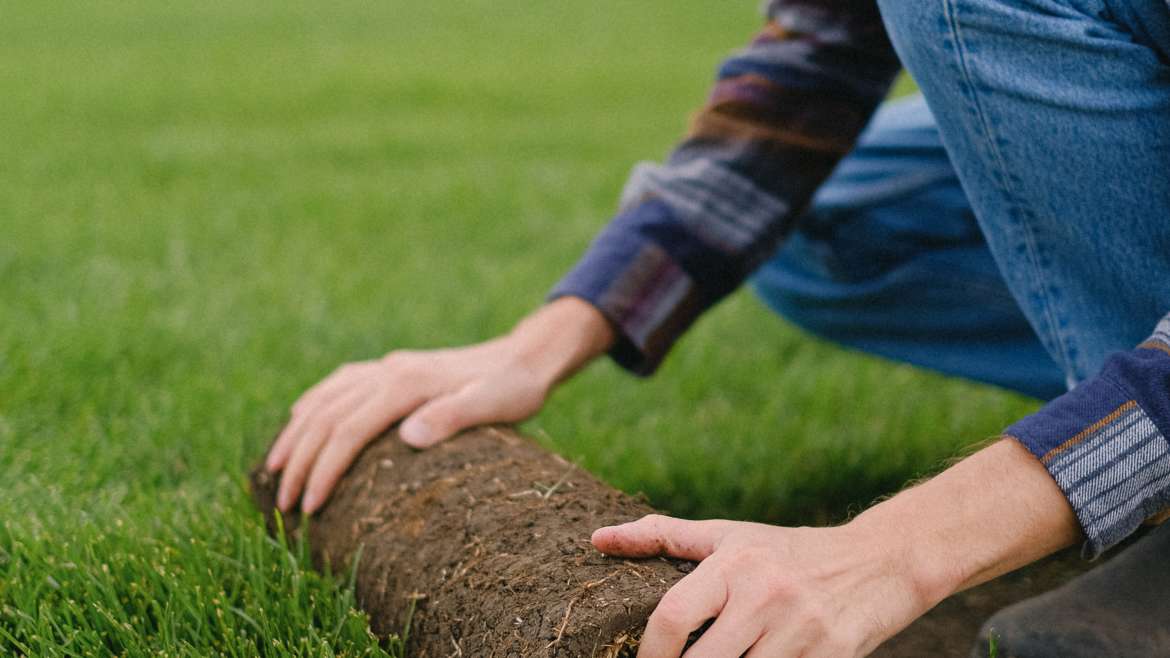Once you have decided on a new turfgrass from King Ranch Florida and had it installed, it is natural to want it to stay beautiful and green. After all, that’s why you made this investment, and you want to protect it. There are some key factors that can make a difference. Proper irrigation is one of those. Choosing the right type of mower is another one. Lawn fertilizer is still another factor in having a healthy and green lawn.
Fertilization has to be managed correctly. Improper or over-fertilization can not only be harmful to your lawn, but it can be harmful to the environment as well. Let’s look at a few tips.
Why Fertilize?
If fertilizer is used correctly, it can stay green and healthy. This is primarily through helping increase leaf and root growth and aiding your lawn in recovering from pest damages and environmental stresses. It can also aid in reducing and controlling weeds, preventing some types of pests and replacing nutrients that the turfgrass is losing as it grows.
Test Your Soil
Before deciding to fertilize, test your soil. One of the three major nutrients in fertilizer is phosphorus. It is not uncommon for soil in Florida to be naturally high in phosphorus, so testing it will tell you if your soil even needs the nutrient or not. The tests will also tell you about other nutrients and your soil’s pH levels. One of the easiest ways to test is to contact your country Extension office. The Extension offices are part of the University of Florida’s Institute of Food and Agricultural Sciences (UF/IFAS) program. This federal-state-county partnership provides many services to Florida residents. You can search here for your nearest office.
Know When to Fertilize
Don’t be in a rush to apply lawn fertilizer. Experts recommend that you wait at least 30-60 days after planting before starting to use fertilizer. This ensures that there is an active root system to absorb the nutrients. Additionally, only fertilize when the grass is actively growing. In South Florida, that can be most of the year, while in the central and northern parts of the state, it will be roughly March through October. Fertilizing when the grass is dormant not only wastes your time and money, but it can actually damage the soil and nearby bodies of water.
Water Matters
The experts at the Southwest Florida Water Management District suggest that you don’t fertilize if rain is predicted in the next 24-36 hours. They also suggest that if your irrigation system uses reclaimed water you ask your utility if the water contains phosphorus or nitrogen. If it does, you will likely not need to fertilize as much.
Other Solutions
Homeowners will often think they need to fertilize when they see their grass getting yellow. The yellowing can be a lack of nitrogen but fertilizing with nitrogen in the summer can have drawbacks. An alternative is to apply iron sulfate or chelated iron to your lawn instead of a complete lawn fertilizer. These products come in liquid and granular forms and are both easy to apply. Learn more here.
Protect the Environment
Florida has a fragile ecosystem and because of that, it has specific labeling requirements for lawn fertilizer. The rules are intended to reduce potential pollution that might result from the application of excess fertilizer to lawns. But those rules are only effective if the consumer acts responsibly. Follow all instructions on the packaging. For more guidance on how to calculate application rates, check here.
More isn’t better when it comes to fertilizer. Overuse can increase pests and environmental stress problems. It is also suggested that you leave at least a 10-foot buffer zone around any body of water that is free of fertilizers and pesticides. King Ranch Florida Turfgrass is a full-cycle operation. We not only grow and harvest our different varieties of grass, but we will deliver and install your new grass as well. King Ranch Florida Turfgrass is proud of the environmentally-conscious “best management practices” farming policies it has implemented throughout its Florida operations. Contact us if you have questions about which variety of turfgrass will meet your needs and our experts will be happy to help you out.


